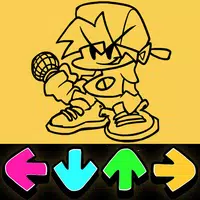The Marvel Cinematic Universe (MCU) has revolutionized the entertainment industry by weaving together an expansive narrative across its films and TV shows. However, Marvel video games operate independently of each other, lacking the interconnected storyline seen in the MCU. For instance, Insomniac's Marvel's Spider-Man series is entirely separate from Eidos-Montreal's Marvel's Guardians of the Galaxy. Similarly, upcoming titles like Marvel 1943: Rise of Hydra, Marvel's Wolverine, and Marvel's Blade do not share a common universe.
Yet, there was once a bold vision at Disney to establish a Marvel Gaming Universe (MGU) that would mirror the MCU's success in the gaming world. So, what led to the demise of this ambitious project?

On The Fourth Curtain podcast, host Alexander Seropian and guest Alex Irvine shed light on the MGU concept, which they both contributed to, and explained why it never came to fruition. Seropian, a co-founder of Bungie known for Halo and Destiny, led Disney's video game division until his departure in 2012. Irvine, a veteran writer for Marvel games, most notably worked on Marvel Rivals.
Irvine reminisced about the early days of his involvement with Marvel games, stating, "When I first started working on Marvel games, there was this idea that they were going to create a Marvel gaming universe that was going to exist in the same way that the MCU did. It never really happened."
Seropian revealed that the MGU was his initiative, conceived even before the MCU took off. "When I was at Disney, that was my initiative, 'Hey, let’s tie these games together.' It was pre-MCU," he said. "But it didn’t get funded."
Irvine, who previously worked on the acclaimed Halo alternate reality game (ARG) I Love Bees, elaborated on the potential mechanics of the MGU. "That was so frustrating because we came up with all these great ideas about how to do it," he shared. "And I was coming out of ARGs at that point and thinking, 'Wouldn’t it be cool if we had some ARG aspects?' There would be a place where players could go that all the games touched, and we could move them back and forth from game to game. We could link in comics, we could loop in anything, we could do original stuff. And then, as Alex said, it didn’t get funded. So we made a bunch of games."
The MGU's failure to gain internal support can be attributed to its complexity. Irvine noted, "Even back then, we were trying to figure out, 'If there’s going to be this MGU, how is it different from the comics? How is it different from the movies? How are we going to decide if it stays consistent?' And I think some of those questions got complex enough that there were people at Disney who didn’t really want to deal with them."
It's intriguing to ponder what might have been if the MGU had secured the necessary funding. Perhaps Insomniac's Spider-Man games could have shared a universe with Square Enix's Marvel's Avengers and Marvel's Guardians of the Galaxy, featuring crossover appearances and culminating in a grand, Endgame-like event.
Looking forward, there's curiosity about whether Insomniac's upcoming Marvel's Wolverine game will be set in the same universe as their Spider-Man series, possibly featuring cameos from Spider-Man or other characters.
Ultimately, the MGU remains a fascinating "what if" scenario in the annals of video game history. In another universe, perhaps it thrives...






